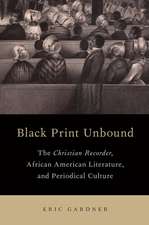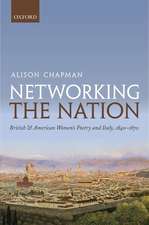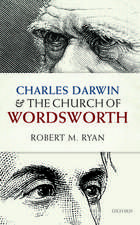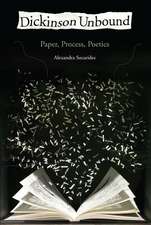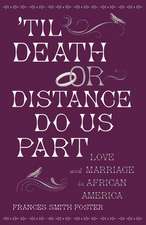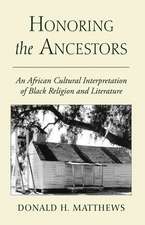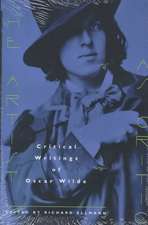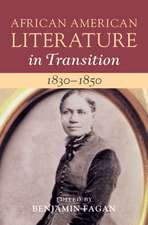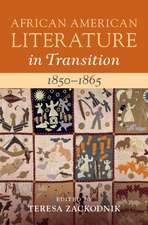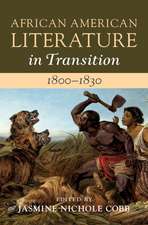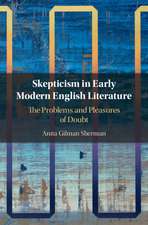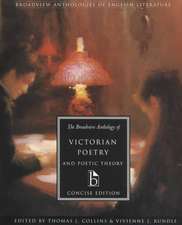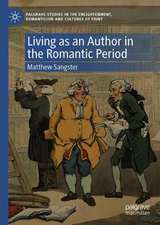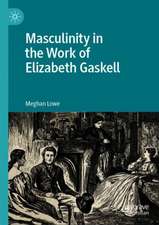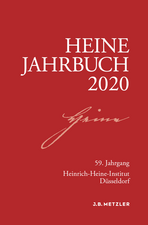The Science of Starving in Victorian Literature, Medicine, and Political Economy
Autor Andrew Manghamen Limba Engleză Hardback – 29 apr 2020
Preț: 497.63 lei
Preț vechi: 637.73 lei
-22% Nou
Puncte Express: 746
Preț estimativ în valută:
95.23€ • 99.55$ • 80.47£
95.23€ • 99.55$ • 80.47£
Carte disponibilă
Livrare economică 03-10 februarie
Preluare comenzi: 021 569.72.76
Specificații
ISBN-13: 9780198850038
ISBN-10: 0198850034
Pagini: 240
Dimensiuni: 160 x 240 x 20 mm
Greutate: 0.48 kg
Editura: OUP OXFORD
Colecția OUP Oxford
Locul publicării:Oxford, United Kingdom
ISBN-10: 0198850034
Pagini: 240
Dimensiuni: 160 x 240 x 20 mm
Greutate: 0.48 kg
Editura: OUP OXFORD
Colecția OUP Oxford
Locul publicării:Oxford, United Kingdom
Recenzii
The book has a substantial introduction with many references that show Mangham's wide interests and competences. It clarifies the key concept at hand, which is corporeal materialism, a biology-based approach that dissected and refuted conservative Malthusian ideas.
The Science of Starving is a fascinating study which combines analysis of medical, social, and literary texts. Deeply interdisciplinary, the book considers the ideological conflict between Malthusian political economy and a more scientifically rigorous physiological analysis of hunger, and how this conflict was explored in the language of nineteenth century literature.
The Science of Starving raises provocative questions about the moral and ontological commitments of fiction, political economy, and medicine vis-à-vis a humanitarian crisis that shows no signs of abating.
This book marshals large bodies of material - literary, medical, political and religious - whilst remaining accessible and succinct... the volume makes an important contribution not only to our understanding of Victorian literature and medicine but also the nature of material knowledge and the relationship between matter and truth.
The first monograph to focus on the comparatively broad subject of extreme hunger in Victorian literature and culture, expanding beyond other studies' narrower emphases on fasting, anorexia, or the Irish Potato Famine. As the title denotes, Mangham situates literary representations of starving bodies in relation to two nineteenth-century cultural contexts, political economy and medical science. Through a meticulous analysis of ample source material, from miscellaneous letters and pamphlets to scientific periodicals, Mangham shows how these two disciplines offered divergent perspectives on the pervasiveness of hunger in Victorian Britain.
Mangham does a good job of blending the works of these writers with Victorian understandings of the human body and the economic impact of starvation. The book is clear and well written...
The Science of Starving is a fascinating study which combines analysis of medical, social, and literary texts. Deeply interdisciplinary, the book considers the ideological conflict between Malthusian political economy and a more scientifically rigorous physiological analysis of hunger, and how this conflict was explored in the language of nineteenth century literature.
The Science of Starving raises provocative questions about the moral and ontological commitments of fiction, political economy, and medicine vis-à-vis a humanitarian crisis that shows no signs of abating.
This book marshals large bodies of material - literary, medical, political and religious - whilst remaining accessible and succinct... the volume makes an important contribution not only to our understanding of Victorian literature and medicine but also the nature of material knowledge and the relationship between matter and truth.
The first monograph to focus on the comparatively broad subject of extreme hunger in Victorian literature and culture, expanding beyond other studies' narrower emphases on fasting, anorexia, or the Irish Potato Famine. As the title denotes, Mangham situates literary representations of starving bodies in relation to two nineteenth-century cultural contexts, political economy and medical science. Through a meticulous analysis of ample source material, from miscellaneous letters and pamphlets to scientific periodicals, Mangham shows how these two disciplines offered divergent perspectives on the pervasiveness of hunger in Victorian Britain.
Mangham does a good job of blending the works of these writers with Victorian understandings of the human body and the economic impact of starvation. The book is clear and well written...
Notă biografică
Andrew Mangham is Professor of Victorian Literature and Medical Humanities at the University of Reading. His books on the intersection between medicine and literature include Dickens's Forensic Realism (2017) and Violent Women and Sensation Fiction (2007). He is editor of Literature and Medicine in the Nineteenth Century (2020) and The Cambridge Companion to Sensation Fiction (2013). He has also co-edited, with Daniel Lea, The Male Body in Medicine and Literature (2018) and, with Greta Depledge, The Female Body in Medicine and Literature (2011).

